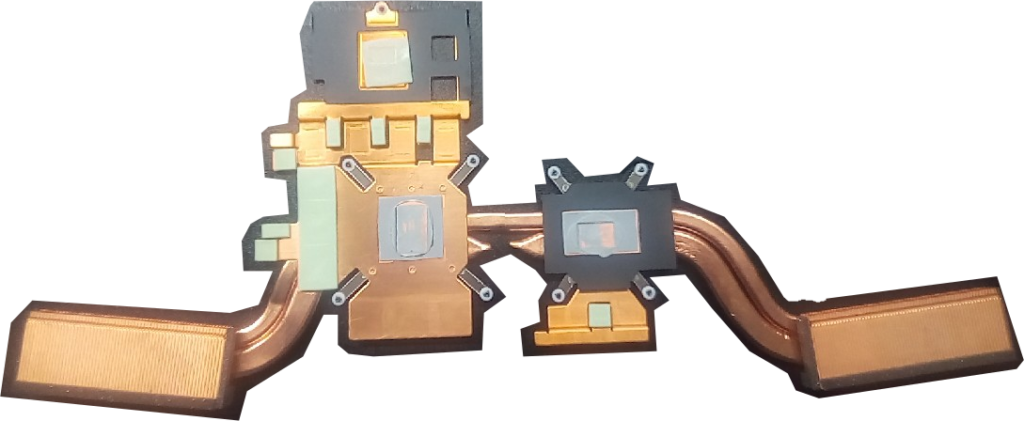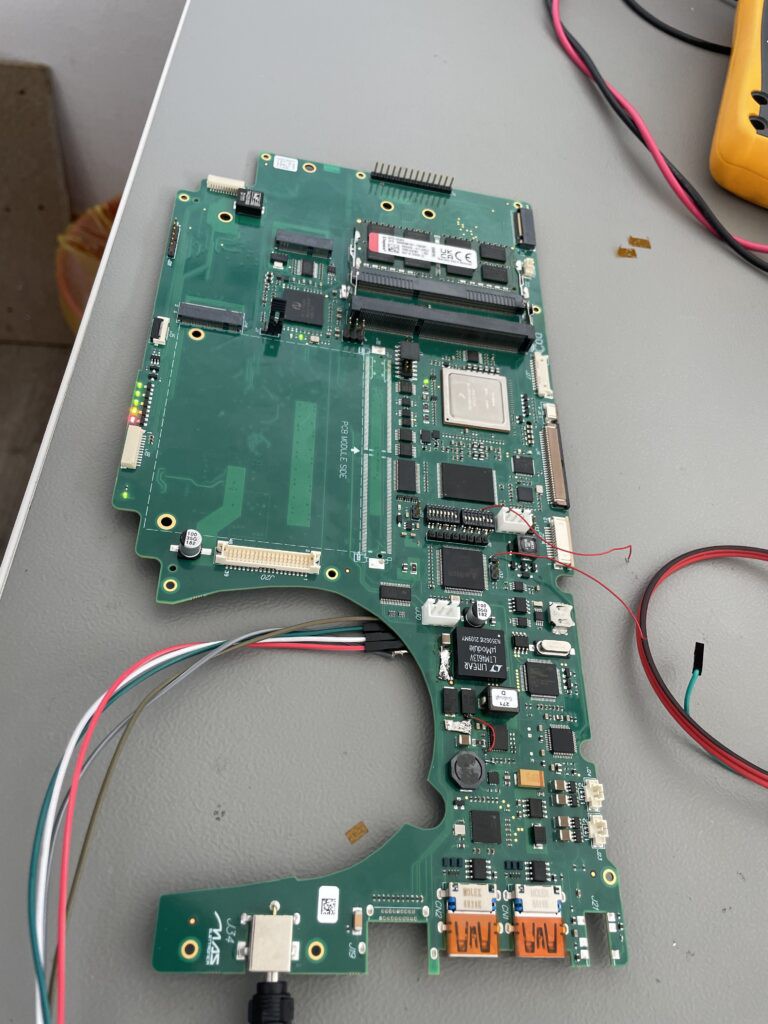Once again we want to thank you all for the great support and great enthusiasm you demonstrated during the CE mark donation campaign. We ended the campaign with a total amount of 12500€ (https://en.wikipedia.org/wiki/CE_marking), this is a huge milestone for us all and we are so very grateful.
By financing the CE mark certification you have shown us that you believe in the project and our vision of creating a fully open hardware notebook motherboard based on the alternative PowerPC CPU architecture.
We closed the campaign with around € 4000 more than expected, and this extra money will cover some of the extra and unplanned costs we faced for the increased price of electronic components and the extra costs of the three MXM video cards (360 USD each).
The CE mark certification is a mandatory requirement for selling electronic products in the European Union. It ensures that our notebook motherboard meets the safety, health and environmental standards of the EU. Without it, ACube Systems would not be able to launch and sell our Notebook on the EU market. Getting the CE mark certification is not an easy nor a cheap process as it involves rigorous testing, documentation and quality controls.

However, the CE certification process can be performed only when the product can be considered completely finished, and that means once the board works, the cooling metal pipes are in place and all is assembled into the selected slimbook eclipse chassis.
Current activities
The Tyche Motherboard has surpassed all the electrical checks, and now the the key activities being performed concentrate on the hardware initialization procedures.
The start-up ramp was carefully calibrated, programming a complex integrated circuit with some logic (i.e. ramps, voltage thresholds, internal ways of making the PWM regulator work, and so on).
The Complex Programmable Logic Device (CPLD) is a Lattice LCMXO640C-3TN100C FPGA is programmed to manage all external peripherals connected to it (see the block diagram and wiring diagram on page 15), manage the interrupts, data, boot reads, set resources according to the CPU and is able to reset all peripherals.

Working on U-Boot
Currently, a small team of volunteers are working on U-Boot . We are decided to buy a JTAG debugger, a quite useful tool indeed that will make the hardware debugging much easier.
We learnt how to configure and build U-Boot, and we set up a cross-development PowerPC toolchain and the related Device Tree Blob that is used to describe the physical configuration of each hardware component available on the motherboard. You may keep an eye on our attempts by looking at our GitLab pages. We started by re-compiling our old U-Boot binary dating back to 2019, the one that we are currently using on our NXP T2080RDB devkit and also trying to compile a newer U-Boot version from a the DENX mainline vanilla branch without our patches. We are now kindly assisted by Max Tretene, the same guy working at ACube Systems that compiles U-Boot for their motherboards such as the Sam440 or the Sam460ex. Max is currently available to introduce hardware support to AMD/ATI Radeon graphics cards in U-Boot, (ndr.: he recently told us that his spare times is not enough so we are proposing him to work under payment) stay tuned for more in-depth posts about it. In the hope of speeding up the development, we provided Max Tretene with our NXP T2080RDB devkit in early June.
We want to thank the dedicated small group of volunteers and especially Max Tretene for their precious spare time spent in trying to configure and compile U-Boot, we very much appreciate their availability and effort, even if a successful result is yet to comes. In addition, we greatly appreciated the offer made by a professional engineer – not to be disclosed yet- that is ready to work for us on U-Boot for a very reasonable amount of money.
Launch of a new fundraising campaign
After quite some internal discussion, we finally decided to launch a new fundraising campaign aimed at support and speeding up multiple actions:
- Buy a JTAG Debugger
- Design of the heat pipes for cooling down both the CPU and the video card;
- Prototype of a heat pipe fitting our Slimbook chassis, a requirement to proceed to the CE certification process;
- Development of an AMD/ATI Radeon driver for U-Boot;
- Development of the device thee to fully exploit each hardware component of the board;
- Compile a custom U-Boot binary from up-to-date DENX sources;
- Provide the entire toolchain for cross compiling U-Boot and the device tree for PowerPC;
- Provide the documentation detailing all the technical aspects of both U-Boot and the device tree so that anybody will be able to understand how to rebuild it from scratch and how to customize it.
In carrying out these actions, we will try our best to optimize both the support of the involved volunteers (any additional help is more than welcome!) and the contracted software engineer(s).
At the moment we only have a rough idea of the amount of required hours of paid work required to complete U-Boot and its closely related device tree. After some internal investigation, a reasonable rough estimate could be at least 100 hours, but it may take more to reach the goal.
We do not have yet a formal quotation of the design of the heat pipes for cooling down both the CPU and the MXM video card. During an informal discussion with electronic engineers that have experience in the design and production of these heat pipes, we estimated approximately 10000 euros.
To sum up, the title of next campaign is “Development of software components and heat pipes for the Tyche Motherboard” and its breakdown costs are the following:
- Around 100 hours of work of a software engineer(s) for the customized U-Boot, the device tree and the AMD/ATI Radeon video driver: 5000 euros
- JTAG debugger 1000 euro
- design of the heat pipes and production of 3 of them for the three prototypes: 10000 euro
The estimated amount to collect with the next campaign is 16000 euros.
We really hope that you will assist us once again during this final journey. We are that close to making it happen: a 64 bit, multi core, PowerPC based notebook fully open hardware with up to today’s standards devices and interfaces!
Donation Campaign Development of software components and heat pipes for the Tyche Motherboard
 Roberto Innocenti
Roberto Innocenti
Discussions
Become a Hackaday.io Member
Create an account to leave a comment. Already have an account? Log In.